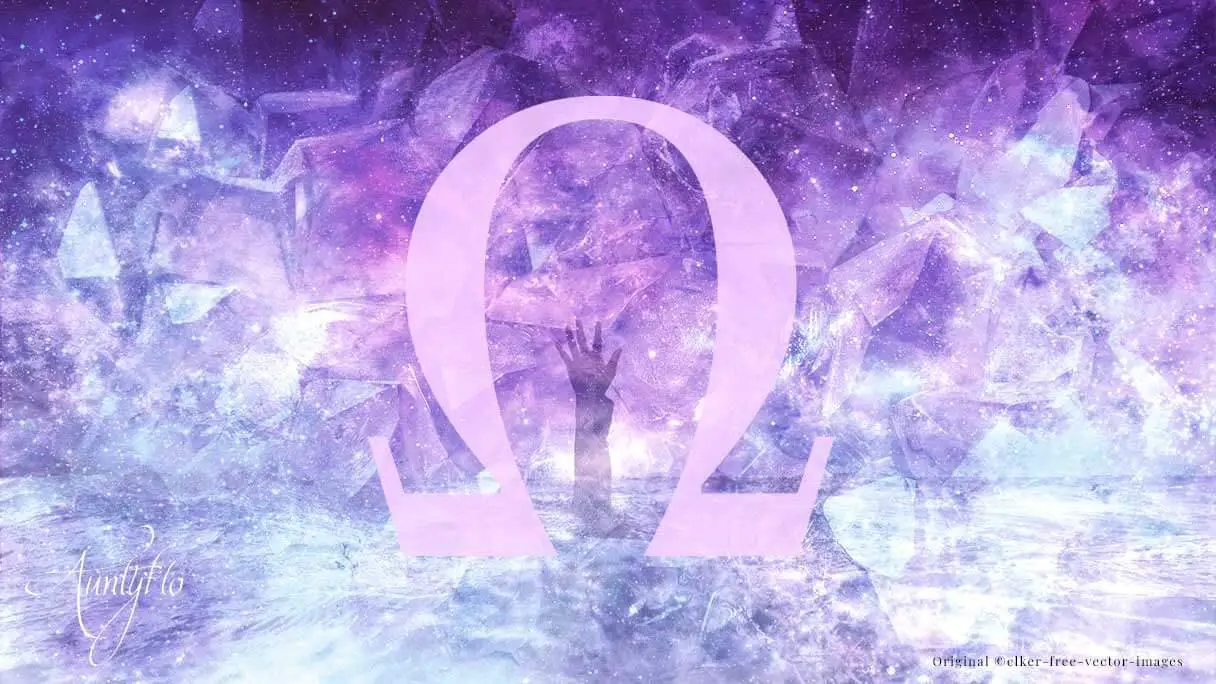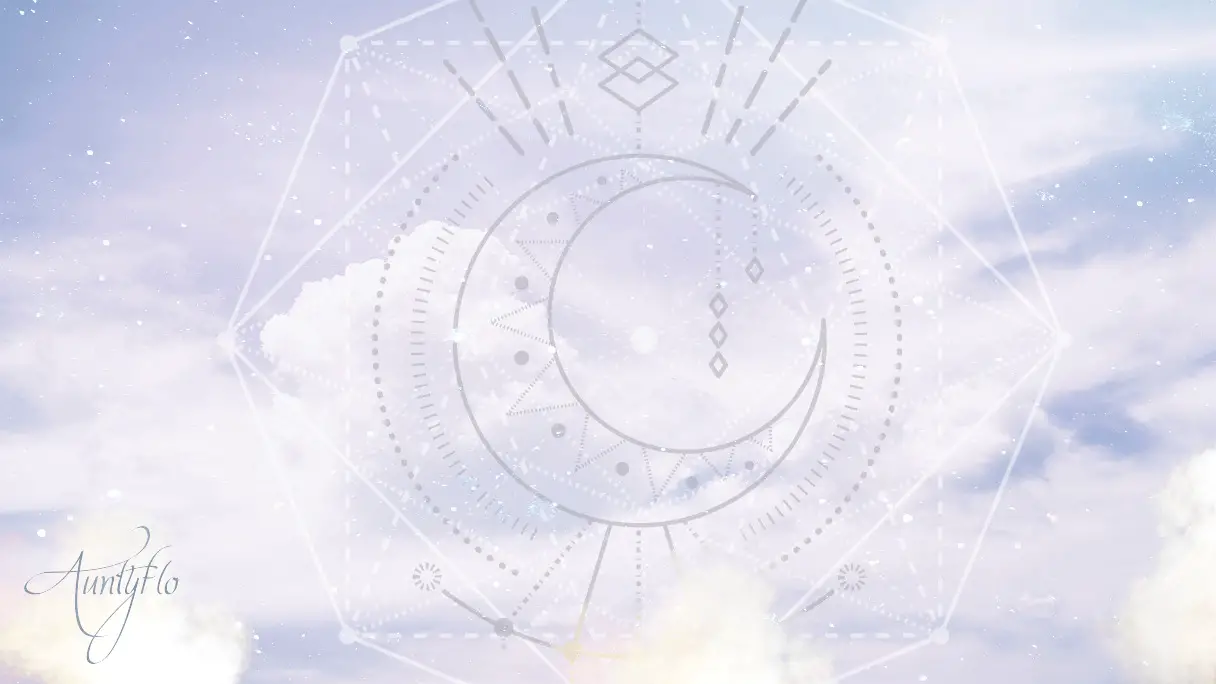Dreams are one of the most mysterious and fascinating aspects of human life. They provide a deep insight into the inner workings of our minds and our connection to the spiritual realm. In this article, we will explore the spiritual meaning of dreams and how they can provide us with guidance on our journey of life. We will uncover the alpha and omega of dream interpretation and how they can help us gain greater understanding of ourselves and our path.
Dream Meanings of Alpha and Omega

The symbolism of alpha and omega in dreams can be quite powerful and meaningful. Alpha and omega are the first and last letters of the Greek alphabet, signifying the beginning and the end. In Christianity, alpha and omega are often used to refer to Jesus Christ, who is the Alpha and the Omega, the beginning and the end.
When alpha and omega appear in our dreams, they can often signify a new beginning or the end of something in our lives. Here are some of the common dream meanings associated with alpha and omega:
- A new beginning – Alpha and omega in a dream can signify a new start in life or the beginning of something important. It can also indicate the start of a spiritual journey.
- Completion – Alpha and omega in a dream can also signify the end of something, such as the end of a relationship or the end of a difficult period in life. It can also indicate the completion of a spiritual journey.
- Transformation – Alpha and omega in a dream can signify a transformation in life, such as changing careers or finding a new purpose.
- Guidance – Alpha and omega in a dream can also signify guidance from a higher power. It can indicate that you are being guided to make the right decisions in life.
- Protection – Alpha and omega in a dream can also signify protection from a higher power. It can indicate that you are being watched over and that you will be safe in your endeavors.
It is important to remember that dream meanings are always personal and can vary from one person to another. If you have had a dream involving alpha and omega, take some time to reflect on the dream and its meaning for you.
Subscribe and Get a Free Dream Journal from Us
Spiritual Meanings of Alpha and Omega
Alpha and Omega are terms used to designate the beginning and the end, respectively, in various spiritual contexts. These terms have been used since at least the time of the early Church fathers, and are found in the Bible.
Alpha, the first letter of the Greek alphabet, is associated with the beginning of all things, and Omega, the last letter of the Greek alphabet, is associated with the end of all things. In the Bible, Alpha and Omega are used to refer to God as the beginning and the end of all things. In Revelation 1:8, the Bible states: “I am Alpha and Omega, the beginning and the ending, saith the Lord, which is, and which was, and which is to come, the Almighty.”
The spiritual meaning of Alpha and Omega can also be found in the idea of a divine cycle, in which the beginning and ending points of one cycle become the beginning and ending points of the next. This cycle symbolizes the eternal nature of God and his power to bring life out of death and to bring order out of chaos.
Alpha and Omega are often used to represent the totality of God’s authority and power. God is not only the beginning and end of all things, but he is also the source of all that is good and the one who ultimately decides all matters. God is the Alpha and Omega, the beginning and the end, the first and the last.
The spiritual meaning of Alpha and Omega is a reminder of God’s sovereignty over the universe and his ultimate authority. As believers, we can trust in the promises of God that he is the beginning and the end, the first and the last, and that he will never abandon us or forsake us.
Alpha and Omega in Christianity

The phrase “Alpha and Omega” is used in Christianity to refer to the beginning and the end, or the first and the last. It is derived from the first and last letters of the Greek alphabet, Alpha (Α) and Omega (Ω). This phrase is used to signify the eternity of God, which has no beginning and no end.
The phrase is used in the Bible, specifically in the Book of Revelation, in which Jesus Christ is referred to as the “Alpha and Omega, the first and the last, the beginning and the end” (Revelation 1:8). This is to emphasize the fact that Jesus Christ is the ultimate source of all creation, and that He is the everlasting God.
The phrase is also used to refer to God’s sovereignty and His absolute power. It is used to illustrate that God is in control of all things, and that nothing can be done without His approval.
The phrase is also used as an encouragement to believers. It is a reminder that God is always with them in all circumstances, and that He is able to bring them out of any difficulty.
Overall, the phrase “Alpha and Omega” is used in Christianity to emphasize the eternity of God and His absolute power and sovereignty. It is a reminder of the fact that God is always present and in control, and that He is able to bring His people out of any difficulty.
Alpha and Omega in Judaism
Alpha and Omega are the first and the last letters of the Greek alphabet, respectively. In the Jewish tradition, these two letters can represent the beginning and the end, or the passage of time. The concept of Alpha and Omega is strongly associated with the teachings of the Bible, particularly in regards to the creation of the world.
In the Book of Genesis, God is described as the Alpha and Omega, the Beginning and the End, the Creator of all things. This is a strong indication of God’s omnipotence and omnipresence, as He is present at the beginning and end of time. This concept is then echoed in the New Testament, where Jesus is referred to as the Alpha and Omega, the Beginning and the End.
In Judaism, Alpha and Omega also symbolize the dual aspects of God’s nature, His goodness and justice. On the one hand, God is the Creator, the source of all good. On the other hand, He is also the source of justice, judging all people according to their deeds and dispensing rewards and punishments. This dual aspect of God is also reflected in the Jewish concept of Tikkun Olam (Repair of the World), which seeks to balance good and evil and bring about a better world.
Alpha and Omega also represent the cycle of life, from birth to death and from death to rebirth. They symbolize the eternal cycle of life, death, and rebirth, as well as the cycle of the Sabbath and holidays that are observed throughout the year.
The concept of Alpha and Omega is also associated with the concept of the Messiah, who will bring about the ultimate redemption of the world and the end of suffering and injustice. In Jewish thought, the Messiah will come with the power of God, bringing about justice and peace for all of humanity.
Overall, Alpha and Omega are important symbols in Judaism that represent the beginning and end, the dual aspects of God’s nature, the cycle of life, and the hope of redemption. They are reminders of God’s omnipotence, omnipresence, and justice, and of the hope that one day, the world will be restored to its former glory.
Alpha and Omega in Other Religions
Alpha and Omega are symbols of the beginning and the end, and have been used for centuries in religious and philosophical contexts. The phrase is found in the Old Testament of the Bible, as God says, “I am Alpha and Omega, the beginning and the ending.” This phrase has been adopted by many other religions and spiritual practices, each with their own unique interpretation.
In Hinduism, Alpha and Omega can be seen as symbolic of the manifest and unmanifest aspects of Brahman, the single divine source of all existence. As the beginning and the end of creation, Alpha and Omega are symbols of the infinite, eternal nature of the universe.
In Buddhism, Alpha and Omega are seen as the duality of birth and death, representing the cycle of samsara, or the cycle of suffering and rebirth. Alpha and Omega are also associated with the Bodhisattva, the enlightened being that is devoted to relieving the suffering of others.
In the Bahá’í faith, Alpha and Omega are seen as symbols of the process of spiritual growth and transformation. Alpha and Omega are used to represent the journey from one’s current spiritual state to a state of expanded awareness, understanding, and love.
In Taoism, Alpha and Omega are seen as symbols of the Tao, or the way of life. Alpha and Omega signify the beginning and end of the Tao, which is a path of balance, harmony, and self-discovery.
Alpha and Omega have been used in many different religious and spiritual practices throughout history. They are symbols of the infinite nature of the universe, of spiritual growth and transformation, and of the journey of life.
Alpha and Omega in Mythology
The terms Alpha and Omega, which are often used to denote the beginning and end, have been used in many different cultures and religions throughout history. In Greek mythology, Alpha and Omega are attributed to the gods Zeus and Chronos. As one of the most powerful gods in Greek mythology, Zeus was considered the Alpha, or the beginning, and Chronos was considered the Omega, or the end.
Alpha and Omega also appear in the Bible. In the book of Revelation, Jesus is referred to as the Alpha and the Omega, meaning that he is both the beginning and the end. This is meant to emphasize his power and authority over all things, both in the heavens and on Earth.
In Egyptian mythology, Alpha and Omega are attributed to the gods Amon-Ra and Osiris. Amon-Ra was the god of the sun and was considered the Alpha, while Osiris was the god of the afterlife and was considered the Omega. This symbolism is meant to emphasize the cyclical nature of life and death.
In Hinduism, Alpha and Omega are referred to as Brahman, the highest god. Brahman is seen as both the beginning and the end, and is seen as the source of all that exists.
Alpha and Omega are also used in many other religions and cultures, including Judaism, Buddhism, and Chinese mythology. In each of these, Alpha and Omega are used to symbolize the beginning and end of all things, and to emphasize the power of the divine.
Alpha and Omega in Literature
Alpha and Omega, often used as symbols of the beginning and end, have been used in literature for centuries. The phrase is derived from the first and last letters of the Greek alphabet, and has been used to represent the infinite nature of God, or a cyclical view of time.
In the Christian Bible, God is referred to as the “Alpha and Omega” in the Book of Revelation, symbolizing his role as the beginning and end of all things. In Jewish literature, the phrase is used to portray the eternity of God, suggesting that He is beyond time and space. In Islamic literature, the phrase is used to describe Allah as the ultimate source of all power, knowledge, and life.
Alpha and Omega are also used to represent the cycle of life, death, and renewal. This is often seen in works of literature that explore the themes of rebirth and transformation. In literature, the phrase is often used to denote the cycle of life, reminding readers that all things come to an end and that life is constantly changing.
Alpha and Omega are often seen as symbols of completeness in literature. In many works, they are used to represent the idea that all things are interconnected and that nothing is complete without the other. This symbol of completeness is often used to emphasize the importance of balance in life, as well as the idea that everything is connected in a larger whole.
Finally, Alpha and Omega are often used to represent the idea of unity. They are used to remind readers that all people are connected and that all things are part of a larger, unified whole. This idea is often used in literature to emphasize the importance of collaboration and understanding between different cultures and people.
Overall, Alpha and Omega are powerful symbols in literature, conveying the power of beginnings and endings, the cycle of life, and the importance of unity. These symbols are used to remind readers of the importance of balance in life and to emphasize the interconnectedness of all things.
Alpha and Omega in Popular Culture
Alpha and Omega have been part of popular culture for centuries. The phrase has been used to refer to beginnings and endings, and is seen in literature, movies, television, and music.
In literature, the phrase “Alpha and Omega” appears in the Bible, where it is attributed to God, referring to His eternal nature. It is also attributed to Jesus in the Book of Revelation, referring to his authority over all things. In modern literature, the phrase is used to refer to a wide variety of concepts, ranging from world events to personal relationships.
In movies, the phrase has often been used to refer to a character’s journey or a particular life stage. For example, in The Matrix, Neo is referred to as “the One,” an Alpha and Omega of sorts. In The Lord of the Rings, Frodo is referred to as the “Alpha and Omega” of the mission to destroy the Ring.
In television, the phrase is often used to refer to the beginning and end of a character’s journey. In the show Lost, John Locke is referred to as the “Alpha and Omega” as he introduces the survivors of the crash to the mysterious island.
In music, the phrase is often used to refer to the beginning and end of a song or album. For example, the Foo Fighters’ album “In Your Honor” is bookended by the song “Alpha and Omega”. Similarly, the Red Hot Chili Peppers’ album “Californication” begins with the song “Around the World” and ends with the song “Alpha and Omega”.
Alpha and Omega have long been used to refer to beginnings and endings in popular culture, and the phrase continues to be used in many different ways. Whether it is used to refer to a character’s journey in a movie, a life stage in literature, or the beginning and end of a song or album in music, the phrase “Alpha and Omega” continues to be used in popular culture as a symbol of beginnings and endings.
Frequently Asked Questions
1. What does the phrase ‘alpha and omega’ mean in the context of dreams?
- The phrase “alpha and omega” refers to the beginning and end of all things, and in the context of dreams, it implies that the dream is the beginning and end of a journey.
- The alpha is the starting point, and the omega is the conclusion or destination. It suggests that the dreamer is in control of his or her destiny, and that the dream is the vehicle for achieving whatever it is that the dreamer desires.
- It also suggests that the dreamer has the power to take charge of his or her life and make their own decisions, rather than relying on outside influences.
- The phrase “alpha and omega” implies that the dream is a journey of exploration and discovery, and that the dreamer is the master of his or her own destiny.
2. How can the omega symbol be used to interpret spiritual meaning from dreams?
The omega symbol is a powerful tool for interpreting spiritual meaning from dreams. It is believed that the omega symbol represents the highest level of spiritual consciousness, and that its presence in a dream can be a sign that the dreamer is on the brink of a spiritual awakening.
When interpreting spiritual meaning from dreams, the omega symbol can be used to:
- Recognize a dream as having spiritual significance
- Understand the message or lesson of the dream
- Discover the spiritual implications of the dream
- Connect to the divine energy that is being revealed in the dream
The omega symbol can also help the dreamer to become more aware of their own spiritual journey, and to gain a deeper understanding of their spiritual path. By recognizing the spiritual significance of a dream, the dreamer can take the necessary steps to bring clarity and focus to their spiritual journey.
3. What are the Benefits of Uncovering Spiritual Meaning from Dreams?
Dreams are powerful metaphors that can provide insight and guidance into our daily lives. Uncovering the spiritual meaning of dreams can offer a wealth of benefits, including:
- Helping to understand and make sense of life’s challenges and obstacles
- Developing a deeper relationship with oneself, one’s spiritual practice and beliefs
- Receiving guidance in making decisions
- Gaining insight into the past and future
- Uncovering hidden talents and abilities
- Providing a better understanding of one’s purpose and life direction
- Improving one’s connection to the Divine
By actively engaging in the practice of dream interpretation, we can connect to our inner wisdom, gain clarity, and move closer to achieving our highest potential.
4. What techniques can be used to uncover the spiritual meaning of dreams?
Dreams are often seen as a window to the soul, providing insight into our innermost thoughts and feelings. In some cases, dreams can also provide a glimpse into spiritual truths and messages from the divine. To interpret these spiritual meanings, there are several techniques that can be used to uncover their hidden depths:
- Keep a dream journal – Writing down your dream upon waking can help you to interpret its spiritual meaning. Keeping a record of your dreams will also enable you to track any recurring symbols or messages.
- Symbology – Dreams often contain symbols that are specific to the dreamer. Taking time to reflect on the symbols within your dream can help to reveal its spiritual meaning.
- Meditation – Meditating on a dream can help to unlock any hidden depths. Spend time in silence, focusing on the dream and allowing yourself to be open to any insights that may arise.
- Seek guidance – Spiritual teachers and advisors can provide invaluable assistance in interpreting the spiritual meaning of dreams. They can offer guidance and help to unlock any hidden messages.
5. How does the spiritual meaning of dreams differ from the more conventional interpretation of dreams?
The spiritual meaning of dreams differs from the more conventional interpretation of dreams in a few ways. Here is a list of the key differences:
- The spiritual interpretation of dreams focuses on the symbolic meaning of the dream, rather than the literal meaning.
- The spiritual interpretation of dreams looks at the emotions and feelings associated with the dream, rather than the surface level elements.
- The spiritual interpretation of dreams seeks to uncover the deeper meaning of the dream, rather than simply deciphering the events that occurred within the dream.
- The spiritual interpretation of dreams looks at how the dream relates to the dreamer’s life and the current circumstances they are facing.
- The spiritual interpretation of dreams is often focused on the spiritual and metaphysical aspects of the dream, rather than the mundane or physical aspects.
Conclusion
The spiritual meaning of dreams is an important concept to understand and explore. Through dreaming, we can uncover deeper truths about ourselves and the world around us. Dreams can provide us with insight into the hidden depths of our subconscious and our spiritual nature. By analyzing the symbols and messages in our dreams, we can gain deeper understanding of our lives and our place in the world. By understanding the spiritual meaning of our dreams, we can gain a sense of clarity and purpose in our lives.










